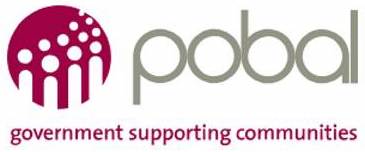
The spotlight is firmly on World No Tobacco Day (today, Thursday 31st May), with Tobacco Free Ireland partners holding a conference to support communities to mobilise and take action to drive towards achieving the Tobacco Free Ireland 2025 goal of less than 5% smoking prevalence in Ireland.
With more quitters than smokers in Ireland, much progress has been made in reducing smoking prevalence in Ireland but we face new challenges as smoking prevalence has not reduced equally across the population. Making Ireland tobacco-free requires game-changing approaches and determination.
Launching today’s conference, the Minister of State with responsibility for Health Promotion and the National Drugs Strategy, Catherine Byrne T.D, said, “Each and every one of us, from across a wide range of organisations and state bodies, has a very important role to play in engaging with our communities to improve the health of our nation.
“We are all too familiar with the devastating effects that smoking has on our health; the stark reality is that tobacco related diseases are responsible for six thousand deaths in Ireland every year. But the message is clear; these are preventable deaths. From the moment you stop smoking, you greatly reduce your risk of serious disease.
“We have a common, achievable goal. We want a healthier Ireland, a Tobacco Free Ireland, and we are committed to making this a reality through meaningful engagement within our communities.”
Research published today shows that those most vulnerable in our communities are most at risk of death and long term smoking related illnesses. Within that cohort our men are those we need to work tirelessly with to encourage them to take the single best decision they can for their health and QUIT.
The research found that:
· One in 4 men and one in 5 women still smoke
· Smoking is now most common among young adults
· Children and young people who smoke experience poorer physical and mental health
· Poorer and marginalised groups risk being left behind as we move to a Tobacco Free Ireland
· “Social” smoking and “Roll-Your-Own” are emerging challenges for tobacco control
· Over 1,000 people per day supported by the HSE to quit – those who reach out for support more likely to quit for good
Speaking at the conference, Dr Stephanie O’Keeffe, National Director, Strategic Planning and Transformation, HSE said, “While we can see the achievements to date, with youth smoking having dropped from 28% in 2010 to 16% in 2017, new HSE research published today shows that smoking is now most common among young adults, suggesting that young people are starting smoking at a later age. Those young people who do smoke also experience poorer physical and mental health. It is up to each of us to work with the smokers we know and meet in our daily life, to encourage them to take the brave and best decision of their lives and quit for their own benefit, in terms of their quality of life. We have the supports, we know that work: quit.ie combined with Nicotine Replacement Therapies such as the patch in combination with a short acting product like the gum for example increases the likelihood of quitting for good by up to four times.”
Dr Paul Kavanagh, Consultant in Public Health Medicine and HSE Clinical and Research Lead for the HSE Tobacco Free Ireland Programme, highlighted the changing face of the smoking epidemic in Ireland, “A social gradient in smoking is clear, with smoking less common among those from more affluent groups (between 13% to 16%) compared to those from less well off groups (27% to 33%). Smokers from more affluent groups and with higher levels of education are the most likely to quit. We need to understand that differences in smoking behaviour are the leading cause of inequalities in health across society. It has been estimated, for example, that half of the difference in mortality between the highest and lowest social strata is due to differences in smoking behaviour”.
Martina Blake, HSE National Lead for Tobacco Free Ireland highlighted the social smoker saying, “Occasional smoking, which includes what is sometimes referred to as “social” smoking, is also an emerging challenge. 4% of smokers in Ireland smoke occasionally or ‘socially’. Occasional smokers are more likely to be younger and more affluent. It is important to people who are occasionally smoking to understand the true risk to their health, versus the benefit of avoiding this potentially life threatening behaviour.”
The good: Every week HSE supports over 5,000 people with online, telephone and face to face smoking cessation support services that are free. These can be accessed through QUIT.ie and are proven to be twice as effective as quitting cold turkey. Those with a medical card can access free nicotine replacement therapies and or cessation medications on prescription from their GP.
The bad: Smoking remains the leading cause of ill health, premature death and reduced quality of life in later years in Ireland. Those who smoke loose on average 10 years of quality life compared to non- smokers. It’s never too late to quit to improve your health.
The ugly: Every week 100 deaths and over 1,000 hospital admissions are caused by smoking affecting women, men and children in every community in Ireland.
See hse.ie/tobaccofreeireland for more information


